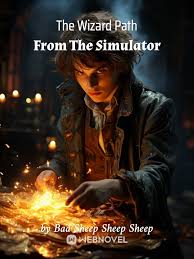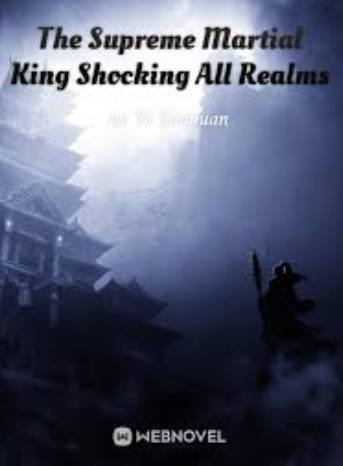Chapter 197 T34
"Yes, Comrade General!" Shulka said: "First of all, I think we should have some changes in the use of artillery!"
"Artillery?" This surprised Zhukov and even Major Gavrilov.
Zhukov thought that what Shulka was talking about should be about infantry or tanks.
"Is there any problem with the artillery?" Zhukov asked.
"I noticed that in our establishment, an infantry division is assigned to one or two artillery regiments!" Shulka paused at this point.
"Yes!" Zhukov nodded.
There is nothing wrong with this kind of organization itself. Modern infantry divisions are also equipped with artillery regiments, because infantry operations and mechanized operations require artillery support.
The problem is that…
"With all due respect, Comrade General!" Shulka said: "The commanders of our army are generally inexperienced and lack the ability to command multi-armed operations. The artillery training at the grassroots level of our army is also insufficient. It is difficult to play a role in the army!"
Zhukov looked at Shulka with a little surprise in his eyes: "I think so too, Comrade Shulka. We are planning to take part of the artillery under the unified command of the front army!"
There is a saying called "Teaching students in accordance with local conditions and teaching students in accordance with their aptitude".
There is no one organization or system that fits all armies.
For troops with good military quality and rich command experience, it is of course better and more flexible to assign artillery to them.
However, if it is beyond its command ability, then attaching artillery will not only bring no benefits, but will also be a heavy burden, because there are many logistics and artillery safety and the coordination of infantry, infantry and tanks that need to be considered.
Especially when it was compressed into a small space near Moscow for defensive warfare, the artillery of each division moved back and forth meaninglessly in the rear due to poor coordination. No effect, but consumes a lot of capacity and increases danger.
If the front army is under the unified command, such problems will not arise.
More importantly, if the centralized use of artillery can also offset the shortcomings of insufficient artillery training to some extent...It is difficult for an artillery regiment to cover a designated target with dozens of guns, even if the same number of shells is fired multiple times, The target may have shifted, too.
But if several artillery regiments and hundreds of artillery fire at the same time, the probability of hitting is obviously much higher.
"Very insightful, Comrade Shulka!" Zhukov said: "And then?"
"I think there are some problems in terms of defense!" Shulka said: "I don't know about other directions, but the deployment from the south such as Tula... Our army is deploying defenses everywhere, and it is impossible to judge the enemy's strength in a timely and accurate manner." The main attack direction, which puts our army in a passive state!"
This is actually the "offensive superiority theory" mentioned earlier. This weakness is common on the defensive side. Of course, Zhukov cannot be blamed for this.
"This allows the enemy to use a small amount of troops to contain the main force of our army in the front!" Shulka said: "Then concentrate the main force to break through from a certain position and penetrate to the traffic center behind our defense line... We are in Tula The battle at is an example!"
"You're right, Comrade Shulka!" Zhukov frowned: "Although our deployment is comprehensive, it is completely unable to resist the powerful firepower of the enemy when they concentrate on a breakthrough in one direction. Divide, encircle, and be annihilated one by one. This is even repeated over and over again on the battlefield, but how can we solve this problem? Spread the defense? Guess where they will attack? No, it will not work !"
It really doesn't work.
Scattered defense means that there are loopholes everywhere, which is equivalent to leading wolves into the house.
Guess the enemy's attack direction... This can only be hoped for, and the enemy may even change the attack target at any time. It is obviously impossible to accurately estimate.
"Mobile defense, Comrade General!" Shulka said.
"Mobile defense?"
"Yes!" Shulka replied: "We must have one or several mechanized troops, which can flexibly maneuver through roads or railways, and quickly replenish them when there is a crisis in a certain position to block or attack the enemy." retreat…"
"This is not something that ordinary troops can do!" Major Gavrilov said: "It should even be said that this must be an elite unit, and the performance and speed of the tank must be at least comparable to that of the enemy..."
Major Gavrilov is right. If mobile defense is to be carried out, then this unit must have strong mobility and combat effectiveness, at least on par with the German army.
If you don’t have the ability to maneuver, it means that you can’t catch up with the enemy and can’t block the gap. No matter how strong the battle is, it’s useless.
If you don't have combat power, it's useless even if you catch up, it's just going up to die.
The Battle of Tula actually exposed this problem.
If the Soviet army had such a fast mobile unit, it would not have been two days and one night without reinforcements rushing to Tula.
If the combat effectiveness of the Soviet mobile force is strong enough, it will not be just a Branfenburg force that blocks the reinforcements on the road.
Conversely, if a fast-moving force with strong combat effectiveness rushed to Tula, then the crisis of the First World War in Tula would not exist at all, and the German army would be beaten back very simply.
However, it is obvious that such troops have high requirements on both personnel and equipment.
People may not be a problem. After all, there are so many people in the Soviet army, and one out of a hundred can always pick out good quality.
But the equipment cannot be caught up in a while.
"Our tank..." Major Gavrilov also thought of this, and then shook his head slightly.
"No, Major!" Zhukov said, "We have tanks!"
"Comrade General!" Major Gavrilov said: "You may not understand what I mean, our tanks either have a high failure rate and are too slow, or they have insufficient protection and firepower..."
"No, Comrade Major!" Zhukov interrupted Major Gavrilov: "You don't understand me, we have tanks, and the performance and maneuverability of this tank are better than those of the Germans!"
"T34?" Major Gavrilov looked at Zhukov with puzzled eyes.
"Yes, T34!" Zhukov nodded.
It is not surprising that Major Gavrilov will know the T34, because this tank has been put into use on the battlefield, but the number is not large.
"Do we have enough T34s?" Major Gavrilov couldn't help asking.
"We are hurrying to produce day and night!" Zhukov said: "Before this, we almost produced one and immediately put it on the battlefield. Now..."
Speaking Zhukov looked at Shulka, and then said: "I think we should use it to form an army!"
(end of this chapter)
RECENTLY UPDATES
3.4







